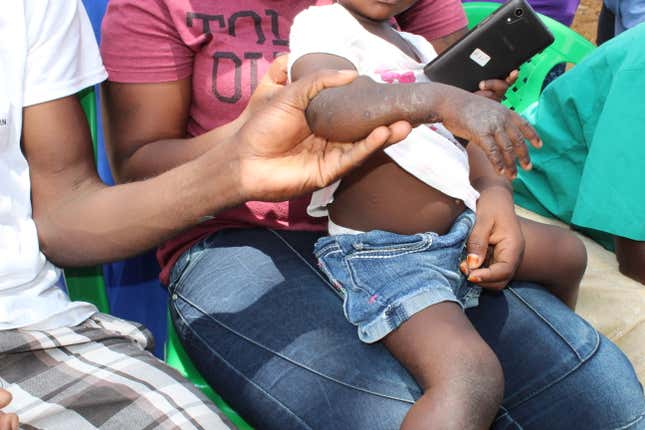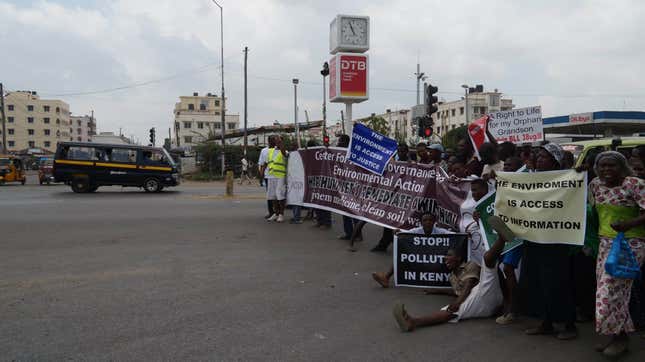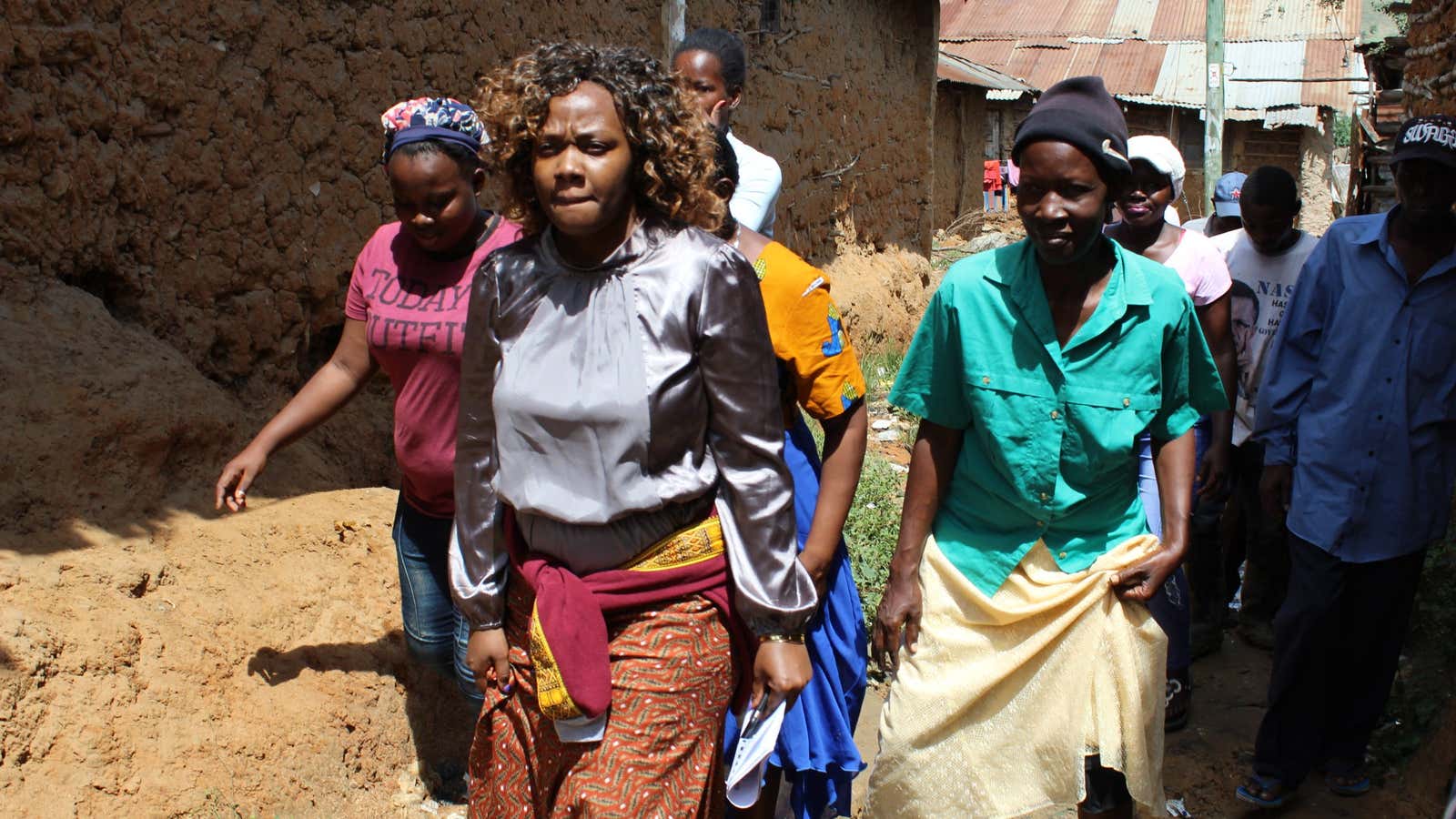On July 16, the 3,000 residents of Owino Uhuru, a low-income neighborhood on the outskirts of Kenya’s coastal city of Mombasa were awarded $12 million in damages after winning a class-action lawsuit against a lead-acid battery smelting company that had been causing lead-poisoning within the community.
The campaign, which led to the lawsuit was led by Phyllis Omido, a mother of two, a former public relations officer at Kenya Metal Refineries EPZ, whose lead-poisoning caused the community to raise alarms.
Omido, now 41, gained international attention as an environmental activist following the campaign she led to close down the factory after several residents of Owino Uhuru fell gravely ill with extremely high levels of lead in their blood, including her son. The Kenyan government also shared blame for being in breach of both environmental and human rights laws within the Kenyan constitution.
Kenya Metal Refineries EPZ was the local subsidiary of Mumbai-based Metal Refinery EPZ, and was exporting processed lead to India—where the lead-acid battery market had been booming. That market was worth $4.5 billion in 2016, and one forecast predicted it would nearly double to $7.9 billion by 2022 thanks to a growing demand in India for cars, new solar power projects, and expanding telecommunication infrastructure.
Omido took her battle nationwide with the creation of the Centre for Justice, Governance and Environmental Action (CJGEA) to help advocate for the environmental human rights of marginalized communities such as Owino Uhuru. It’s played a key role in helping to raise awareness and change attitudes in Kenya when it comes to environmental issues.

“Usually these cases take up to even ten years and ours took only four so in this case, I think it’s a positive sign. The court really did its best within the Kenyan jurisdiction, but they say justice delayed is justice denied,” Omido tells Quartz Africa.
For some of the sick residents of Owino Uhuru, justice may have come too late as the CJGEA was frustrated by the bureaucratic political system in Kenya and therefore forced to engage in a years-long court battle. The Institute for Health Metrics and Evaluation (IHME) estimated that in 2017, lead exposure accounted for 1.06 million deaths and 24.4 million years of healthy life lost worldwide due to long-term effects. The highest burden was in low- and middle-income countries such as Kenya.
Kenya’s Environment and Land Court, through which justice was served to the residents of Owino Uhuru, was created as part of the country’s 2010 constitution. It is the only currently operational and constitutionally mandated environmental court in Africa.
But Omido sees going to court as a last resort. With the lead poisoning case, she first sought recourse through other channels such as tribunals, the Senate and Parliament. However, she was turned away at each point, even as the health of those affected in Owino Uhuru deteriorated. “They told us they can’t give us justice, we should just go to court. They said this hoping that we would get frustrated with the bureaucracy. Unfortunately, this is how Kenyan government officials think,” she says.
In a 2014 report (pdf), the United Nations Development Programme (UNDP) said, “A transformational shift to sustainable development will not generate economic, social and environmental triple wins unless it is underpinned by the necessary constituency in civil society, effective governance institutions and the political will to bring about change.”

Similarly, Omido says environmental justice needs the support of the political elite. She believes most of them live in a bubble and do not understand the repercussions of neglecting the environment will be borne by all.
In her view, Kenya has “a really long way to go” because the political system does not support environmental justice. Despite how substantial the Owino Uhuru case is for the country, no government official has come out to comment on it, not even their local member of Parliament or governor.
Omido looks to Wangari Maathai for inspiration in her work. Maathai was the first African woman to win the Nobel Peace Prize in 2004 for her environmental activism in Kenya.
“Remember Wangari Maathai tried litigation but in the end, she said the environment was not conducive for her to pursue a class-action,” she says. “We have followed it up and gone this far. We don’t know how far we’ll go but wherever we reach we expect the next generation to continue the fight.”
Sign up to the Quartz Africa Weekly Brief here for news and analysis on African business, tech and innovation in your inbox
